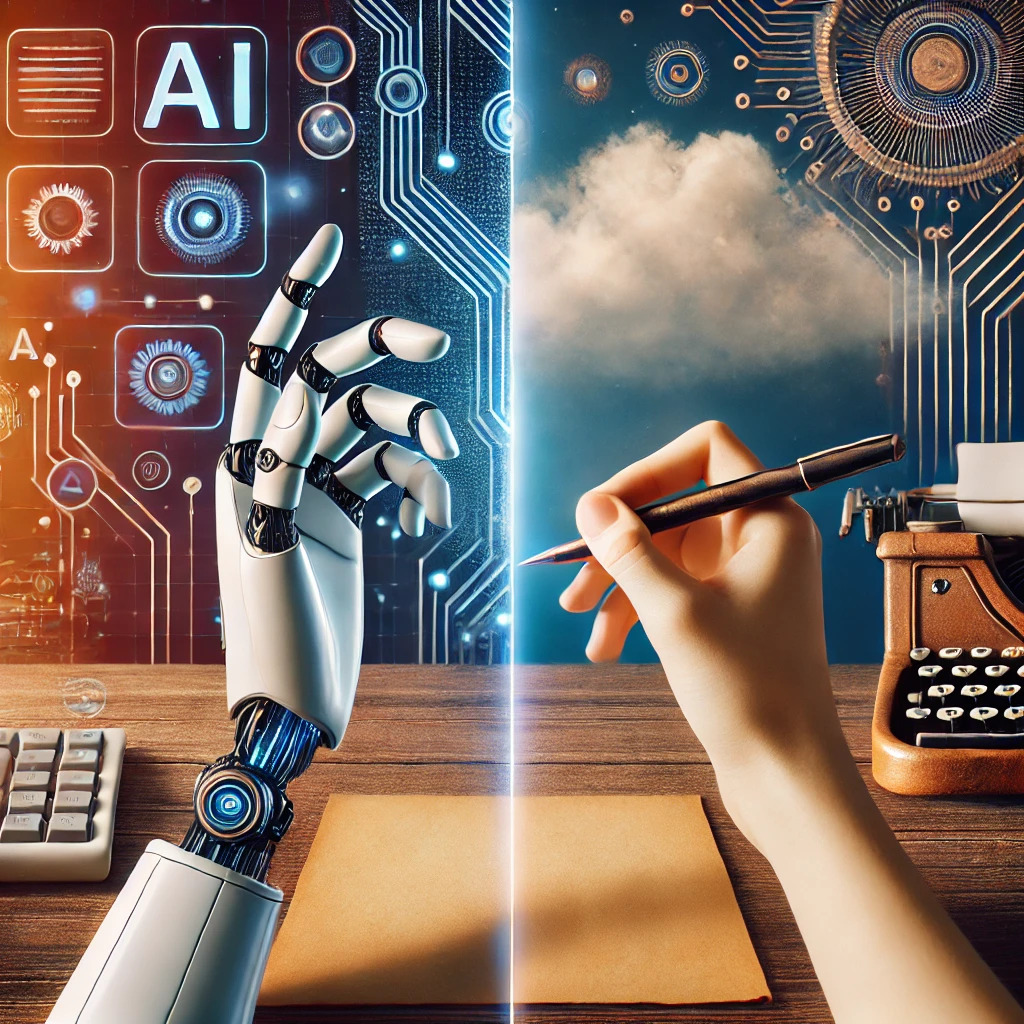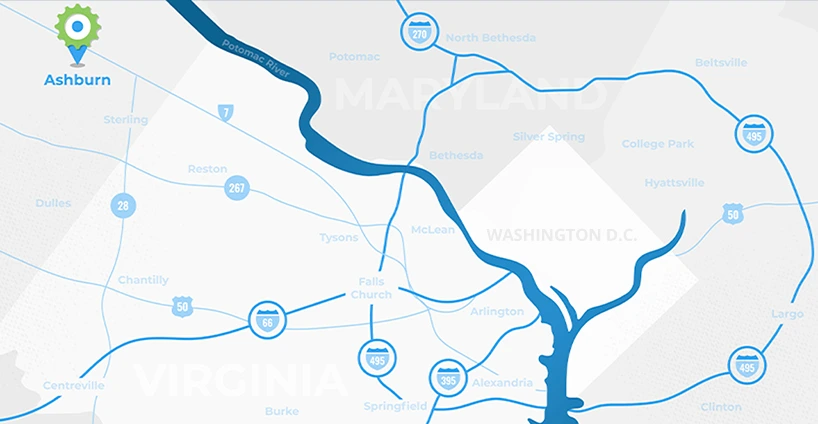AI-Generated Content Is Ruining Your Brand and How to Fix It Before It’s Too Late!

In the article "8 Reasons to Avoid AI-Generated Content," IoT For All explores the drawbacks of using artificial intelligence for content creation. While AI tools can enhance efficiency, the article argues that excessive reliance on them can undermine brand credibility, SEO rankings, and overall content quality.
Additionally, the McKinsey Global Survey: The State of AI highlights that while AI adoption was increasing at the time, businesses faced challenges in scaling AI initiatives and managing risks effectively. It’s important to note that this study was conducted five years ago, and AI has advanced significantly since then. Today, AI-generated content is more sophisticated, but the concerns regarding authenticity, accuracy, and strategic depth still remain. Furthermore, ImageWorks Creative’s expert staff emphasizes the importance of authentic storytelling and personalized brand messaging—elements that AI still struggles to replicate.
While AI can be useful for content creation, it must be reworked and optimized by human oversight to ensure originality, engagement, and effectiveness. AI-generated text often lacks strategic depth and personalization, meaning that without proper human engineering—editing, refining, and optimizing—it risks being generic, unoriginal, and ineffective for SEO. Ironically, this extensive reworking process can sometimes take longer than writing content from scratch. This is why AI is best used as a starting point for research, brainstorming, and content outlines rather than a full-fledged content replacement.
Below, we break down each of the eight reasons mentioned in the article and add our perspective on why they matter.
1. Google’s Policies Penalize AI Content
Our Take: Google has made it clear that it prioritizes high-quality, original content created for humans, not algorithms. While AI-generated content isn’t outright banned, it often lacks the depth and expertise needed to rank well. Businesses relying solely on AI risk their content being flagged as low-value or even de-indexed.
To ensure compliance with Google’s guidelines, AI content must be carefully rewritten, fact-checked, and strategically optimized by human editors. However, this process can be time-consuming, as AI-generated content often requires extensive modifications to make it sound natural, unique, and engaging. In many cases, what starts as an attempt to save time by using AI ends up requiring even more effort to refine, restructure, and improve readability. This reinforces the idea that AI works best as an initial tool for generating ideas, research, and rough drafts—rather than as a full replacement for human writing.
2. AI-Generated Content Can Be Low Quality
Our Take: AI tools can produce generic, repetitive, or even nonsensical text. While they’re improving, they still struggle with nuance, storytelling, and unique insights. Brands that use AI-generated content without thorough human enhancement and optimization may end up with bland and uninspiring material that fails to engage audiences. AI-generated drafts should be seen as a starting point, not the final product—requiring rewriting, restructuring, and tone adjustments by humans to make them compelling and valuable.
3. AI Struggles with Accuracy and Facts
Our Take: One of the biggest risks of AI-generated content is misinformation. AI doesn’t verify facts; it predicts words based on patterns. This can lead to false claims, outdated statistics, or misleading conclusions. Human intervention is necessary to fact-check, source, and validate AI-generated content before publishing it to maintain credibility and trustworthiness.
4. Lacks Authentic Brand Voice
Our Take: AI-generated content often sounds robotic, generic, and overly "AI-like." Instead of reflecting a brand’s unique personality, it tends to follow predictable structures, making it obvious that it wasn’t written by a human. This lack of authenticity can make content feel distant, unnatural, and impersonal—driving away readers instead of building engagement.
ImageWorks Creative stresses that a strong brand voice is crucial for fostering trust and engagement, something AI-generated content often fails to accomplish. However, when AI is used as a content assistant rather than an author, a skilled human writer can refine and personalize the text to ensure it aligns with a brand’s tone, style, and messaging.
5. Ethical and Legal Concerns
Our Take: AI-generated content raises ethical issues, such as plagiarism and intellectual property violations. Since AI tools pull from vast data sources without proper attribution, there’s a risk of unknowingly copying someone else’s work. Human oversight is essential to check for originality, proper sourcing, and ensuring compliance with copyright laws before publishing AI-assisted content.
6. AI Can’t Think Creatively
Our Take: Creativity involves original thinking, emotions, and cultural awareness—things AI still lacks. While AI can generate content quickly, it cannot come up with truly innovative ideas or compelling narratives. McKinsey’s study noted that organizations struggled with implementing AI in ways that truly added value. While AI tools have improved, the fundamental limitation of lacking human creativity remains.
To overcome this, AI-generated drafts should be reviewed by human content strategists, who can inject unique insights, storytelling, and creative hooks to make the content stand out.
7. AI Content Often Lacks Strategic Depth
Our Take: Successful content is not just about writing—it’s about strategy. AI doesn’t understand audience intent, marketing goals, or business objectives. It lacks the ability to craft compelling calls to action, optimize for conversion, or align content with broader marketing strategies.
Human editors must ensure that AI-generated content is strategically structured, optimized for engagement, and aligned with business goals. AI can assist in producing an initial draft, but only human insight can tailor content to a specific audience and purpose.
8. Overuse Can Harm SEO and Engagement
Our Take: AI-generated content may seem like a shortcut for high-volume production, but Google’s algorithms are designed to prioritize quality over quantity. Overusing AI without careful human oversight can lead to keyword stuffing, repetitive phrasing, and shallow content—all of which can negatively impact SEO performance and audience engagement.
To prevent this, AI-generated content should be rewritten and optimized for natural readability, keyword integration, and user intent—ensuring that it provides real value and ranks well on search engines.
Final Thoughts: AI Needs Human Engineering to Succeed
AI is a powerful tool, but it should not be used as an automatic content replacement. Instead, AI-generated content should serve as a starting point that is reworked, refined, and optimized by human editors to ensure originality, accuracy, and engagement.
However, it’s also crucial to recognize that the process of refining AI-generated content can often take just as long—if not longer—than writing original content from scratch. This highlights AI’s true value: not as a content creator, but as a tool for brainstorming, research, and first drafts that humans can refine into high-quality, unique, and engaging content.
For further insights, explore the McKinsey Global Survey (noting that this study was five years ago, and AI has evolved significantly) and consult ImageWorks Creative’s expert advice on maintaining an authentic brand voice.
Read the full article here: 8 Reasons to Avoid AI-Generated Content.
-Joseph







